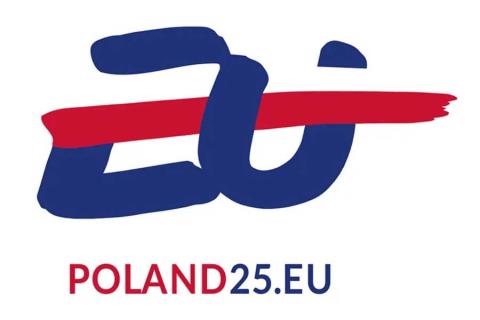European standards deliver quality, innovation, and efficiency for industry and consumers across Europe, while also supporting economic growth and facilitating international trade. CEN, CENELEC and their Polish member, Polski Komitet Normalizacyjny – PKN, welcome Poland’s Presidency of the Council of the European Union and look forward to leveraging the power of standards to support its goals.
The Polish Presidency began on the 1st of January and will end in June 2025, under the motto ‘Security, Europe!’. Poland’s ambition is to reinforce the Council of the EU’s work on multiple dimensions of security: external, internal, information, economic, energy, food, and health.
As two of the officially recognized European Standardization Organizations (ESOs), CEN and CENELEC, together with their Polish member PKN, are excited to explore how the Presidency and the standardization community can work together to utilize standards to support these multiple dimensions of security.
-
Protection of People and Borders
The protection of people and borders is one of Europe’s fundamental goals. Poland intends to take the opportunity of the Presidency to address hybrid threats and enhance the EU’s ability to respond to natural disasters and provide humanitarian assistance.
CEN and CENELEC have developed several standards and workshop agreements on how to respond to natural disasters and prevent extensive damage. For example, EN 1998-1-1:2024 ‘Design of structures for earthquake resistance’ is a part of a series of construction Eurocodes that support the development of earthquake resistant buildings.
In addition, CWA 18005:2023 provides guidance to developing early warning messages for social media in the time of a disaster, and CLC/TS 50600-2-10:2021 is a technical specification on risk assessments for data centres in case of disruptive seismic activity.
-
Resistance to foreign interference and disinformation
Disinformation and cyber-attacks can pose a strong threat to Europe’s security, infrastructure, and democracy. The Polish Presidency expects to strengthen the fight against disinformation and bolster Europe’s cybersecurity capabilities.
CEN and CENELEC contribute to strong and secure digital services in Europe, through the development of cybersecurity and electronic identification standards in JTC 13 ‘Cybersecurity and Data Protection’ and CEN TC/ 224 ‘Personal identification and related personal devices with secure element, systems, operations and privacy in a multi sectorial environment’.
CEN and CENELEC also work on initiatives that contribute to the analysis of the potential impact of climate change, such as the CEN workshop agreement on ‘Good practice recommendations for a common EU methodology for the valuation of ecosystem benefits’. Such initiatives help develop the understanding needed to communicate the importance of preventing climate change.
-
Ensuring security and freedom of business
European economic security is one of the top priorities for policymakers, as highlighted by the conclusions of the Draghi Report. The Polish Presidency will work to deepen the Single Market, promote the reduction of bureaucracy, and support industries in sectors that are crucial for economic security, such as energy and digital technology.
CEN and CENELEC believe that standards are an essential cornerstone to the Single Market. They contribute to competitiveness by facilitating the dissemination of European innovations, promoting international trade, and – in the case of harmonized standards – helping firms comply with regulations.
CEN and CENELEC also promote digitalization through work on cybersecurity, Artificial Intelligence, and data, with the recent creation of a joint technical committee on Data management, Dataspaces, Cloud and Edge.
-
Energy transition
The Polish Presidency will aim to ensure the security and affordability of European energy while promoting the development of clean energy and the enhancement of the European energy infrastructure.
CEN and CENELEC are committed to using standards to drive the European clean energy transition in a wide array of sectors, such as ‘CEN/CLC/JTC 6 Hydrogen in energy systems’ , ‘CLC/TC 21x Secondary cells and batteries’, and ‘CLC/SR Smart Energy’.
In October 2024, CEN and CENELEC also co-hosted an event on leveraging standards for green electricity systems in the context of the High-Level Forum on Standardization Workstream 9. This brough together representatives from Member States, the European Commission, European Standardization Organizations (ESOs), grid operators, equipment manufacturers, to discuss needs for a stable and flexible electricity system.
-
Competitive and resilient agriculture
In a time when Europe is facing supply chain instability and the increasing effects of climate change, it is essential to ensure food security. The Polish Presidency wants to support the European agricultural sector by ensuring its competitiveness, supporting farmers, and showcasing the benefits of preventing the effects of climate change on agricultural resilience.
European standards support the development of high-quality and effective agricultural machinery (CEN/TC 144), animal feeding stuffs (CEN/TC 237), and fertilizers (CEN/TC 260). CEN is also at the early stages of developing a procedure for assessing biosecurity in farm environment and the Farm to Fork chain.
-
Health Security
As highlighted by the COVID 19 pandemic, health is a key part of our collective well-being. The Polish Presidency aims to bolster health security with a focus on digitalization, critical medicines, and the mental health of children.
CEN and CENELEC have several standardization activities that contribute to these goals. For example, CEN/TC 251 ‘Health informatics’ develops standards to support the quality of healthcare data and how digital technologies can use that data. CEN and CENELEC are also looking to the future of medical developments, with the publication of a roadmap on standardization for Organ-on-Chip, which aims to develop technical solutions that mimic the function of an organ using microchip technology.

Giovanni COLLOT
gcollot@cencenelec.eu



